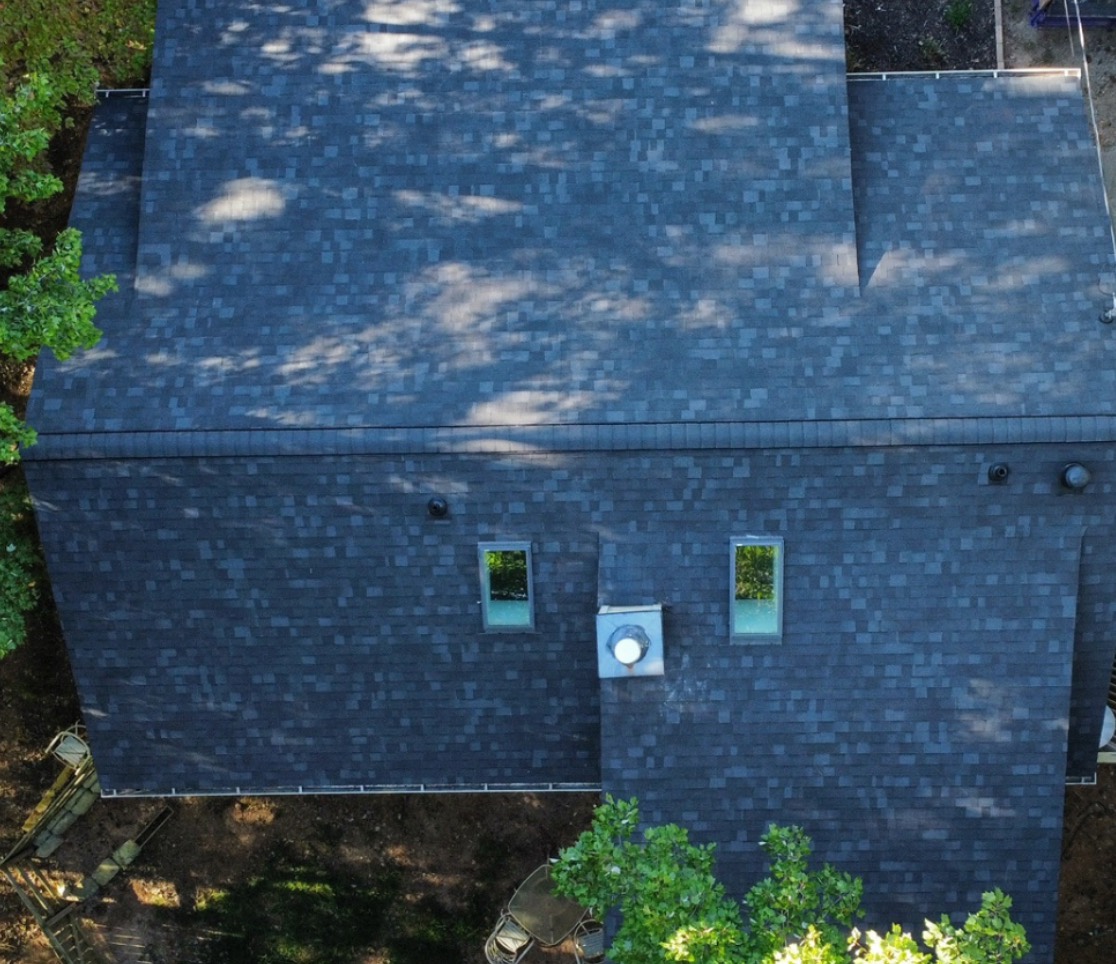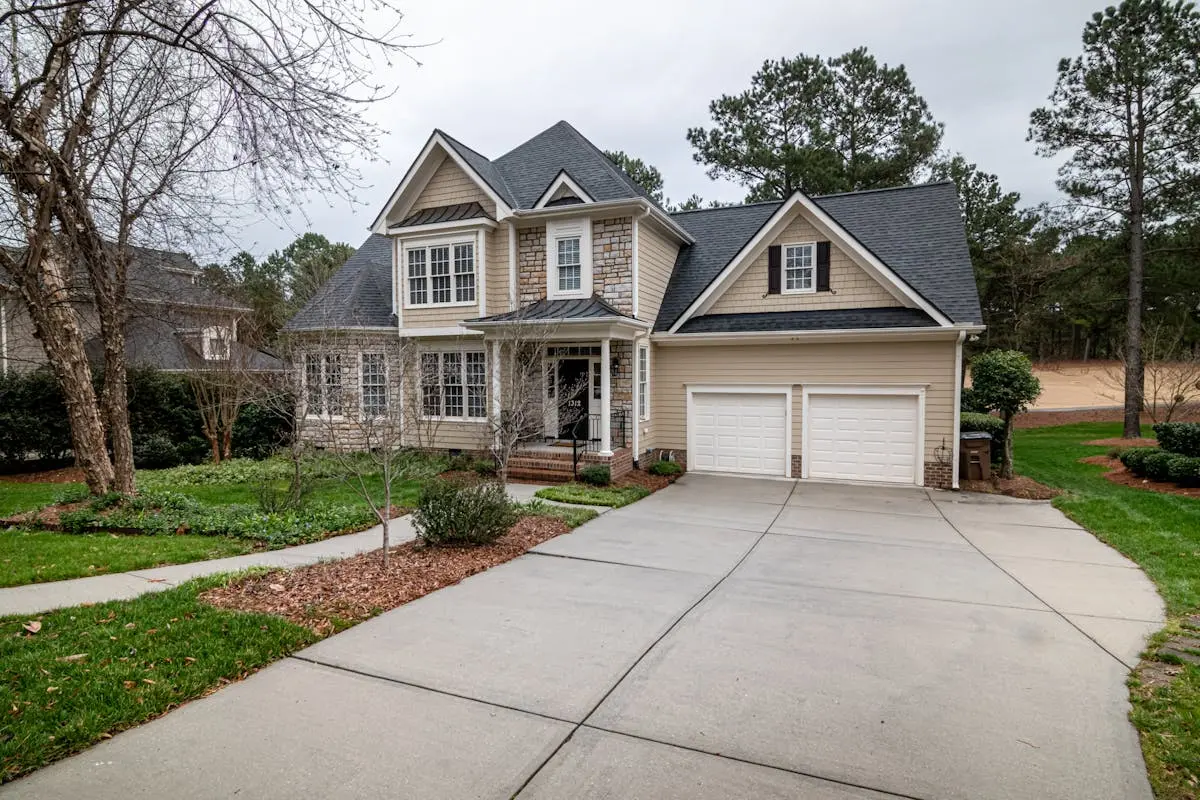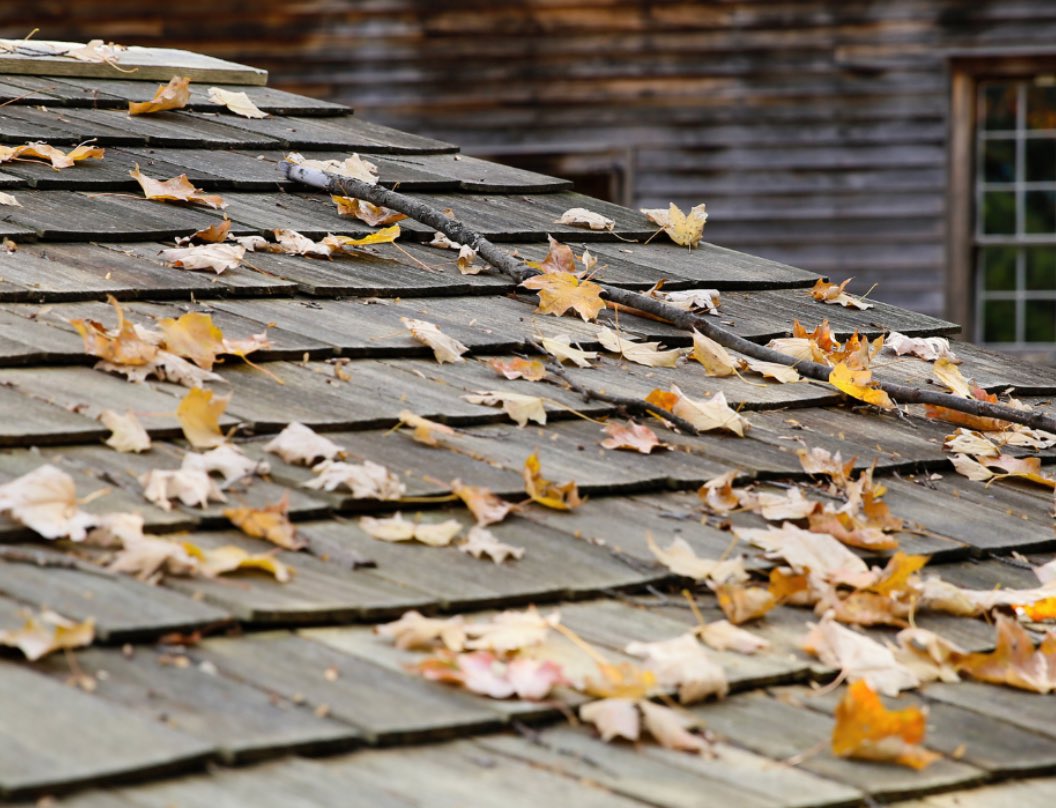How Alabama's Climate Affects Roofing Materials
Alabama is known for its warm climate, frequent storms, and high humidity levels. These weather conditions can have a significant impact on your home's roofing materials. Choosing the right materials for your roof is essential to ensure durability and long-term performance.
This article will explore how Alabama's climate affects roofing materials and what you can do to protect your home.
Understanding Alabama's Climate
Alabama experiences a subtropical climate, characterized by hot summers, mild winters, and abundant rainfall. The state also faces frequent thunderstorms, especially during the spring and summer months. Hurricanes and tropical storms can also hit the region, causing severe weather conditions. Let's take a closer look at how these climate factors affect roofing materials.
High Temperatures
During the summer months, Alabama can experience scorching temperatures, often reaching the 90s and beyond. These high temperatures can cause some roofing materials to expand and contract, leading to potential cracking and damage over time. Choose materials that can withstand heat and maintain their structural integrity.
Humidity and Rainfall
Alabama's high humidity levels and frequent rainfall can lead to moisture-related issues, such as mold and mildew growth. Certain roofing materials may be more susceptible to moisture damage, so selecting water-resistant options is crucial to prevent these problems.
Storms and Wind
Severe storms, including thunderstorms and hurricanes, can bring strong winds and heavy rainfall. These conditions can cause significant damage to roofs, especially if they are not properly maintained or built with durable materials. Storm damage roof repair and roof replacement are essential steps in restoring your roof after storm damage to ensure your home remains protected from the elements. Understanding how different roofing materials react to storm conditions can help you make informed decisions for your home.
Choosing the Right Roofing Materials
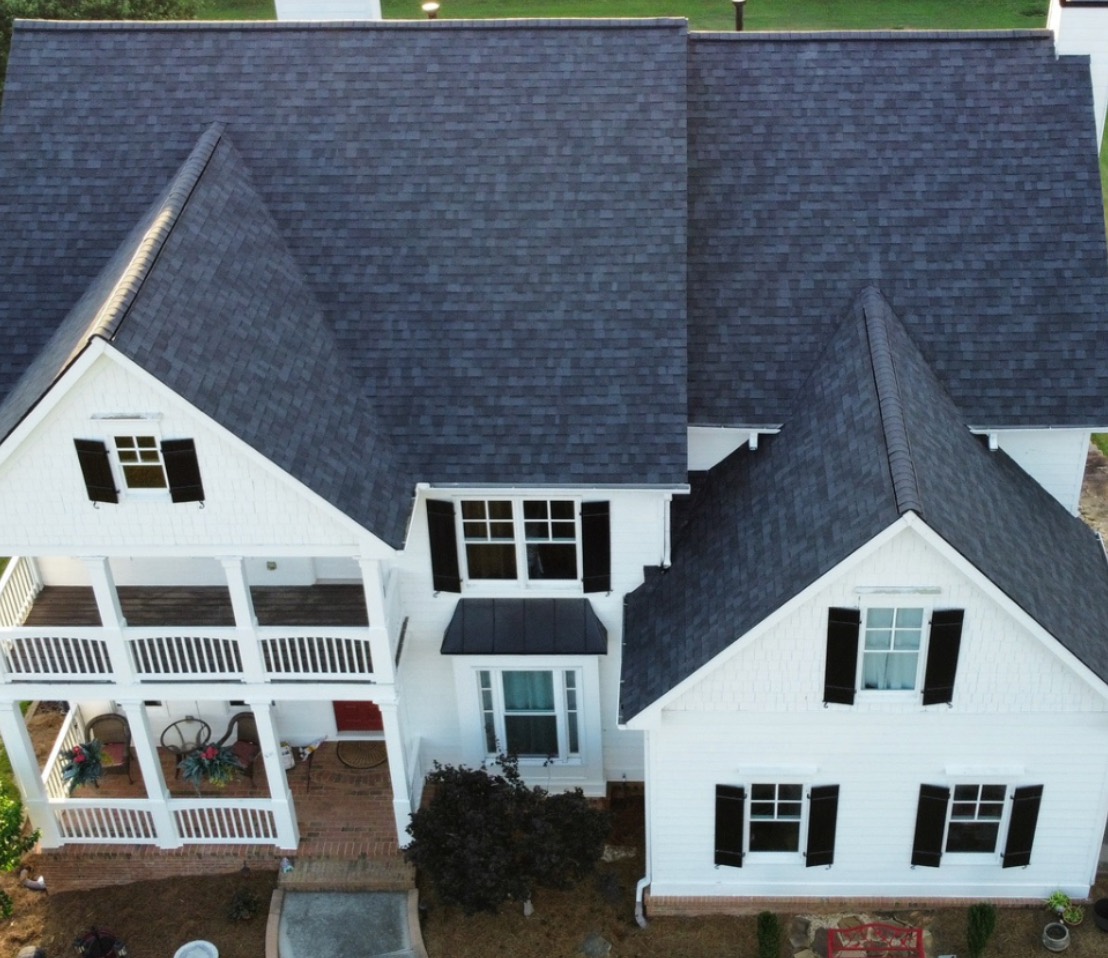
When selecting roofing materials for your Alabama home, consider the climate challenges we discussed. Here are some popular options and their suitability for Alabama's weather:
Asphalt Shingles
Asphalt shingles are one of the most common roofing materials in Alabama. They are affordable, easy to install, and available in various styles and colors. However, they may not be the best option for high-temperature areas, as they can become brittle and crack over time.
Metal Roofing
Metal roofing is an excellent choice for Alabama homes because of its durability and resistance to extreme weather conditions. Metal roofs can withstand high temperatures, heavy rain, and strong winds. Additionally, they reflect sunlight, which can help keep your home cooler during the hot summer months.
Clay and Concrete Tiles
Clay and concrete tiles offer a unique aesthetic and are highly durable. They are resistant to fire, moisture, and heat, making them suitable for Alabama's climate. However, they are heavier than other materials, so it's essential to ensure your home's structure can support their weight.
Wood Shingles and Shakes
Wood shingles and shakes provide a natural, rustic look but may not be the best choice for Alabama's humid climate. They are susceptible to moisture damage, mold, and rot if not properly treated and maintained.
Synthetic Roofing Materials
Synthetic roofing materials, such as rubber or polymer-based products, are designed to mimic the appearance of natural materials like wood or slate. They are lightweight, durable, and resistant to moisture, making them a suitable option for Alabama homes.
Importance of Regular Roof Maintenance
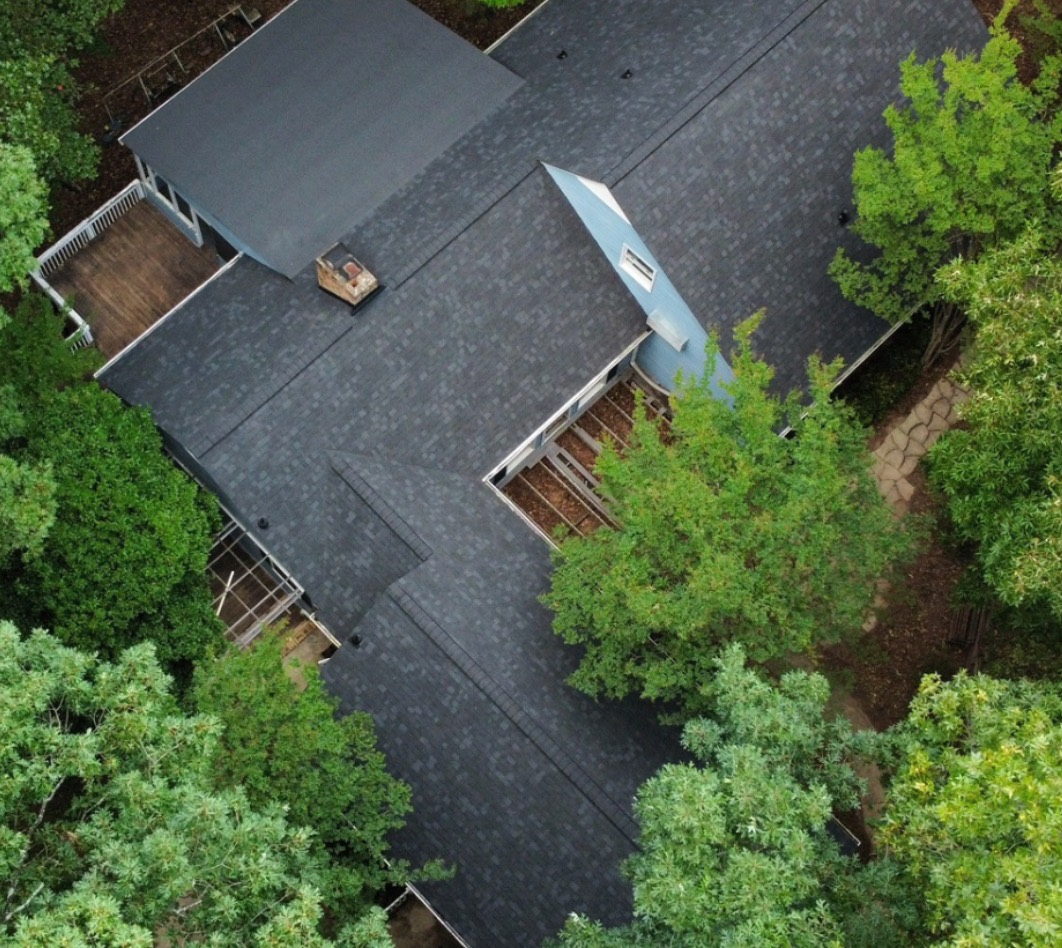
Regardless of the roofing material you choose, regular maintenance is crucial to ensure your roof's longevity and performance. Here are some tips to keep your roof in top condition:
- Inspect your roof regularly: Look for signs of damage, such as missing shingles, cracks, or leaks. Address any issues promptly to prevent further damage.
- Clean your gutters: Clogged gutters can lead to water buildup and damage your roof. Make sure to clean them regularly, especially after storms.
- Trim overhanging branches: Falling branches can damage your roof, so keep surrounding trees trimmed and well-maintained.
- Schedule professional inspections: Hiring a roofing contractor to inspect your roof periodically can help identify potential problems early and extend your roof's lifespan.
Finding the Right Roofing Contractor
Choosing a reliable roofing contractor is essential for a successful roofing project. Here are some tips to help you find the right professional for your needs:
- Research and compare: Look for local roofing companies with positive reviews and a proven track record of quality work.
- Check for licenses and insurance: Ensure the contractor is licensed and insured to protect yourself from potential liabilities.
- Request references: Ask for references from previous clients to gauge their satisfaction with the contractor's work.
- Get multiple quotes: Obtain quotes from several contractors to compare pricing and services.
Conclusion
Alabama's climate presents unique challenges for homeowners when it comes to choosing the right roofing materials. By understanding the impact of high temperatures, humidity, and storms on different materials, you can make informed decisions to protect your home. Regular maintenance and hiring a reputable roofing contractor are also essential for ensuring your roof's longevity and performance.
In summary, consider factors such as durability, heat resistance, and moisture resistance when selecting roofing materials for your Alabama home. With the right materials and proper care, your roof can withstand the test of time and keep your home safe and secure.
At Universal Roofing in Montgomery, we specialize in providing high-quality residential roofing solutions tailored to Alabama's unique climate. Contact us today for a consultation and let us help protect your home with a durable, long-lasting roof!
The Benefits of Gutter Installation and Maintenance
Gutters are often an overlooked part of home maintenance, but they play a crucial role in protecting your home from water damage.
For Des Moines homeowners, understanding the benefits of proper gutter installation and regular maintenance can make a significant difference in the longevity and health of their homes.
In this article, we will delve into why gutters are essential, how they protect your home, and the importance of working with professional roofing contractors for gutter installation and maintenance.
Why Gutters Are Essential
Gutters are designed to channel rainwater away from your home. Without them, water can cause serious damage to your roof, siding, foundation, and landscaping. Here are the primary reasons why gutters are essential:
Protecting Your Home's Foundation
The foundation of your home is its backbone. When water is not properly diverted away from your home, it can lead to erosion and weaken the foundation. Over time, this can cause cracks and even significant structural damage. Gutters help to ensure that water flows away from your home’s foundation, keeping it strong and intact.
Preventing Roof Damage
Water accumulation on your roof can lead to leaks and damage to your roofing materials. Proper gutter installation helps to prevent this by directing water safely off the roof and away from the home. This not only preserves the integrity of your roof but also extends its lifespan.
Safeguarding Landscaping
Excessive water runoff can destroy your landscaping, washing away soil and damaging plants. Gutters help to control the flow of rainwater, protecting your garden and lawn from erosion and waterlogging.
The Importance of Professional Gutter Installation
Working with professional roofing contractors for gutter installation is crucial for ensuring your gutters function effectively. Here’s why hiring experts is beneficial:
Precision and Expertise
Professional roofing contractors have the knowledge and experience to install gutters with precision. They know how to measure and install gutters so they fit perfectly and function optimally. This expertise is vital for preventing issues such as leaks or improper drainage.
Quality Materials
Contractors typically have access to high-quality materials that are more durable than those available at your local hardware store. By using premium materials, you ensure that your gutters can withstand harsh weather conditions and last longer.
Customized Solutions
Every home is different, and professional contractors can provide customized gutter solutions tailored to your needs. Whether you have a unique roof design or specific water drainage concerns, a professional can design a gutter system that works best for your home.
Regular Gutter Maintenance: A Must for Des Moines Homeowners

Once your gutters are installed, regular maintenance is key to ensuring they continue to protect your home effectively. Here’s what you need to know about maintaining your gutters:
Cleaning Your Gutters
Leaves, twigs, and other debris can clog gutters, preventing water from flowing properly. Regular cleaning, especially in the fall and spring, is essential to keep your gutters clear. You can do this yourself or hire a professional to ensure thorough cleaning.
Inspecting for Damage
Regular inspections help you catch potential issues before they become major problems. Look for signs of rust, leaks, or sagging gutters. If you notice any damage, it’s important to address it promptly to prevent further issues.
Checking Downspouts
Downspouts are essential for directing water away from your home. Make sure they are not clogged and are positioned correctly. They should extend several feet away from your foundation to prevent water accumulation near the base of your home.
Benefits of Regular Gutter Maintenance
Regular maintenance not only extends the life of your gutters but also offers several other benefits:
Cost Savings
By maintaining your gutters, you avoid costly repairs to your roof, foundation, and landscaping. Preventive maintenance is always more affordable than fixing damage after it has occurred.
Increased Home Value
Well-maintained gutters contribute to the overall appearance and condition of your home. This can be a selling point if you ever decide to put your home on the market. Buyers appreciate a home that has been well cared for, and functional gutters are part of that package.
Peace of Mind
Knowing that your home is protected from water damage provides peace of mind. You can rest easy knowing that your investment is safe from the elements, thanks to your properly functioning gutter system.
Choosing the Right Gutter System for Your Home

When it comes to gutter systems, there are several options to consider. Here are a few common types:
Seamless Gutters
Seamless gutters are custom-made to fit your home, reducing the risk of leaks. They are typically more durable and require less maintenance than traditional sectional gutters.
Aluminum Gutters
Aluminum gutters are lightweight, resistant to rust, and available in various colors. They are a popular choice for many homeowners due to their affordability and durability.
Copper Gutters
Copper gutters are known for their longevity and unique appearance. They develop a patina over time, which can add character to your home. Although more expensive, they are an excellent investment for those looking for durability and aesthetics.
Conclusion
In Des Moines, where weather conditions can be unpredictable, having a reliable gutter system is crucial for protecting your home. Proper gutter installation and regular maintenance can prevent costly damages and ensure your home remains in excellent condition.
By working with professional roofing contractors, like us at Universal Roofing and Construction, and choosing the right gutter system, you can enjoy the benefits of a well-protected home for years.
Don't overlook the importance of gutters—invest in their installation and upkeep to safeguard your home against the elements. With the right care, your gutters will serve you well, providing essential protection and peace of mind.
How Quality Roofing Can Save You Money in the Long Run
Investing in a quality roof may seem like a hefty expense upfront, but it can lead to significant savings down the line. In this blog, we’ll explore the various ways quality roofing not only protects your home but also conserves your hard-earned money over time. Let’s uncover the financial benefits of choosing quality roofing materials and skilled installation.
Understanding the Importance of Quality Roofing
Quality roofing is essential for protecting your home from the elements, enhancing curb appeal, and ensuring structural integrity. A well-installed roof acts as your first line of defense against harsh weather conditions, which can wreak havoc on less durable materials. This leads to a crucial understanding: investing in quality roofing is not just about style, but about safeguarding your home.
Moreover, the material you choose can vastly transform how your home performs. Quality roofing often reflects better warranties and ensures compliance with building codes, which suggests that you’re investing in a long-term solution. Understanding these implications sets the stage for why quality matters.
Think about it: a roof that’s made to last protects your home while giving you peace of mind. How often do you consider climbing up there to check its condition? By knowing your roof is strong and reliable, you can focus your energy on enjoying your home rather than worrying about potential leaks or damage.
The Initial Investment vs. Long-Term Savings
While the upfront cost of quality roofing may be higher, it often pays off through extended lifespan and reduced maintenance costs. Many homeowners hesitate when faced with a large bill, but it’s essential to look at the bigger picture. A quality roof can last over 25 years, whereas cheaper options might need replacement in a fraction of that time.
To illustrate, consider a homeowner who spends (10,000 on a low-quality roof that lasts only 10 years, versus another who invests )15,000 in a high-quality alternative with a lifespan of 30 years. In the long run, not only does the second homeowner save on replacement costs, but they also evade numerous repairs over that decade, leading to a noteworthy overall financial benefit.
Saying no to cheap roofing may feel challenging, yet the reality is that investing in quality can lead to substantial financial freedom. Over time, your saved dollars can roll into new adventures instead of endless repairs.
Energy Efficiency and Lower Utility Bills
A quality roof can significantly enhance your home’s energy efficiency, keeping it cooler in the summer and warmer in the winter. This section will discuss how that leads to lower energy bills. Consider how heat escapes through a poorly insulated roof, causing heating bills to skyrocket during the chilly months. Conversely, a well-built roof maintains temperature, reducing the need for excessive heating or cooling.
By investing in quality roofing, you could save upwards of 20% on your energy bills annually. Energy-efficient materials reflect sunlight, minimizing heat absorption, while also providing insulation that regulates indoor temperatures. Therefore, not only does your comfort level improve, but your wallet feels the difference, too.
Picture your home during a scorching summer. A sturdy roof over your head can mean the difference between a stuffy, uncomfortable living space and a cool, refreshing retreat. Emphasizing energy efficiency through quality roofing is a decision that pays both immediate comfort and long-term financial dividends.
Avoiding Costly Repairs with Quality Materials
Cheap roofing materials can lead to frequent repairs and replacements. Here, we’ll look at how investing in high-quality materials reduces the need for constant upkeep. Picture this: every time a storm hits, you might face a leak or worse, simply due to using inferior materials. Quality roofing alleviates such headaches, which can quickly diminish your financial resources.
For instance, high-quality shingles that withstand wind and rain extend the time before needing replacements. With top-notch roofing, you won’t find yourself repeatedly climbing ladders or paying repair bills. Instead, peace of mind becomes your new normal—an invaluable benefit.
Think of your roof as an investment in your home’s safety. By opting for durable materials, you not only reduce the chances of future problems, but you also enhance the longevity of your roof itself.
Increased Property Value with Quality Roofing
Investing in quality roofing can enhance your property’s value, making it more attractive to buyers. Many prospective homeowners are on the lookout for properties that not only look good but also have roofs that promise longevity and reduced maintenance concerns. A quality roof not only serves to protect the home but becomes a selling point that can set your property apart in a competitive market.
Imagine this scenario: two similar homes are up for sale, one with a high-quality roof and one with a mediocre one. Which do you think would attract more buyers? The answer is clear! Homebuyers want reassurance that they won’t face replacement costs right after making their purchase. Thus, a quality roof not only sells the home but often adds a premium to the asking price.
In today’s real estate market, investing in quality roofing becomes a shrewd strategy for homeowners looking to maximize their return on investment. It’s not just about aesthetics—it’s about securing a solid financial future.
Choosing the Right Roofing Contractor
The right contractor can make all the difference in the performance of your roof. We’ll cover tips for selecting a reputable roofing professional who can ensure high-quality work. A skilled contractor doesn’t just nail shingles; they encapsulate all the components that make roofing effective—flashing, ventilation, insulation, and more.
Start by looking for recommendations from friends or family. Online reviews can provide insight into contractors’ quality of work and reliability. An established contractor will not only possess the necessary certifications and insurance but also provide a comprehensive warranty, so you know your investment is in good hands.
Don’t underestimate the value of communication with your contractor. They should be approachable and willing to explain the roofing process to you. A trustworthy contractor will guide you through material choices while ensuring the final installation aligns with your quality expectations.
The Long-Term Advantages of Investing in Quality Roofing
In conclusion, quality roofing is not just about aesthetics or immediate protection; it’s a smart investment for your future. By opting for quality materials and experienced professionals, you’re ensuring durability, energy efficiency, and fewer repair costs, all of which contribute to long-term savings. Make the wise choice for your home and wallet by investing in quality roofing today.
Preparing Your Roof for the Changing Seasons in Nashville
As the seasons change, Nashville homeowners must pay special attention to their roofs. The roof over your home is your first defense against the weather. From the sweltering summer heat to the icy winter chills, your roof endures a lot.
Proper roof maintenance ensures longevity and safety. In this guide, we'll discuss essential steps to prepare your roof for Nashville's changing seasons.
Understanding the unique challenges posed by each season allows homeowners to take proactive measures in safeguarding their homes. By familiarizing yourself with the potential impacts of Nashville's climate on your roof, you can implement preventive strategies that not only extend the life of your roof but also enhance the overall safety and comfort of your home. Let's delve into the seasonal effects and maintenance strategies tailored to Nashville's diverse weather conditions.
Understanding Nashville's Weather and Its Impact on Roofs
Nashville experiences a variety of weather conditions throughout the year. Summers can be hot and humid, while winters bring cold temperatures and occasional snowfall. Spring and fall are milder but can include heavy rains and storms. Each of these seasons can affect your roof in different ways.
The diverse climate in Nashville requires homeowners to adopt a dynamic approach to roof maintenance. Understanding the specific challenges each season presents can help plan the right maintenance strategy. For instance, the impact of high humidity levels in summer can accelerate the growth of mold and mildew on your roof, while the winter season's freezing temperatures can exacerbate existing vulnerabilities in your roof's structure.
Summer Heat
The intense summer sun can cause roofing materials to expand, leading to cracks and other damage. High temperatures can also cause roofing materials to deteriorate faster.
The UV rays from the sun can cause the color of shingles to fade, which not only affects the aesthetic appeal of your home but may also compromise the integrity of your roofing materials. The expansion and contraction of materials due to temperature fluctuations can lead to structural weaknesses, making it crucial to conduct regular inspections and maintenance during the summer months.
Winter Cold
Winter brings freezing temperatures and sometimes snow and ice, which can lead to ice dams and water seeping into your home. Freezing and thawing cycles can also cause shingles to become brittle and crack.
Ice dams pose a significant risk as they can prevent proper drainage, causing water to back up under the shingles and into the home. This can result in water damage, mold growth, and even structural damage if left unaddressed. Preparing your roof for winter involves ensuring proper insulation and ventilation to minimize the risk of ice dams forming.
Spring and Fall Storms
These seasons are known for unpredictable weather, including heavy rains and storms. Wind and water can damage shingles and cause leaks.
The combination of wind and rain during these seasons can lead to the loosening of shingles, creating potential entry points for water. It's important to inspect your roof for signs of wear and tear after storms and address any issues promptly to prevent more extensive damage. Regular maintenance checks during these transitional seasons can help mitigate the risk of storm-related damage and ensure your roof remains secure.
The Importance of Regular Roof Inspections

Regular roof inspections by professional roofing contractors are crucial. A thorough inspection can identify minor issues before they become major problems. Nashville roof inspection services can help you spot loose or missing shingles, damaged flashing, and other potential issues.
Proactive roof inspections can save homeowners from costly repairs and extend the lifespan of their roofs. By identifying and addressing potential problems early, you can prevent minor issues from escalating into significant structural damage. Regular inspections are especially important in Nashville, where the weather can be unpredictable and harsh on roofing materials.
What to Expect in a Roof Inspection
During a roof inspection, a roofing company will check for:
- Missing or damaged shingles
- Signs of water damage or leaks
- Proper ventilation
- Gutter condition
- Flashing integrity
Inspectors will also evaluate the condition of the roof's underlayment and examine any roof penetrations such as chimneys and skylights for signs of wear. After the inspection, they will provide a detailed report and recommendations for any necessary repairs or maintenance, allowing homeowners to make informed decisions about their roof's health.
Essential Roof Maintenance Tips
Maintaining your roof doesn't have to be complicated. With a few regular tasks, you can keep your roof in great shape year-round.
Regular maintenance is key to preventing small issues from becoming costly repairs. By incorporating these simple yet effective practices into your home maintenance routine, you can safeguard your roof against Nashville's diverse weather conditions and ensure its longevity.
Clean the Gutters
Clogged gutters can lead to water damage and ice dams in winter. Make sure to clean your gutters at least twice a year, especially before winter and after the leaves have fallen in autumn.
Regular gutter cleaning prevents water from pooling on your roof, which can lead to leaks and water damage. In addition to cleaning, inspect your gutters for any signs of damage or wear, and make necessary repairs to ensure they function properly throughout the year.
Trim Overhanging Branches
Trees add beauty to your property but can be a hazard to your roof. Trim any branches that hang over your roof to prevent them from falling during a storm and causing damage.
Overhanging branches can scrape shingles and leave your roof vulnerable to leaks. Regularly trimming these branches not only protects your roof but also enhances the overall aesthetics and safety of your property, reducing the risk of branches falling during storms.
Check for Storm Damage
After a storm, check your roof for damage. Look for missing shingles, dents, and other signs of damage. If you suspect any issues, contact a Nashville roof repair service immediately.
Promptly addressing storm damage can prevent minor issues from escalating into major repairs. Conduct a thorough inspection from the ground, and if necessary, hire a professional to assess and repair any damage to ensure your roof remains in optimal condition.
When to Consider Roof Replacement
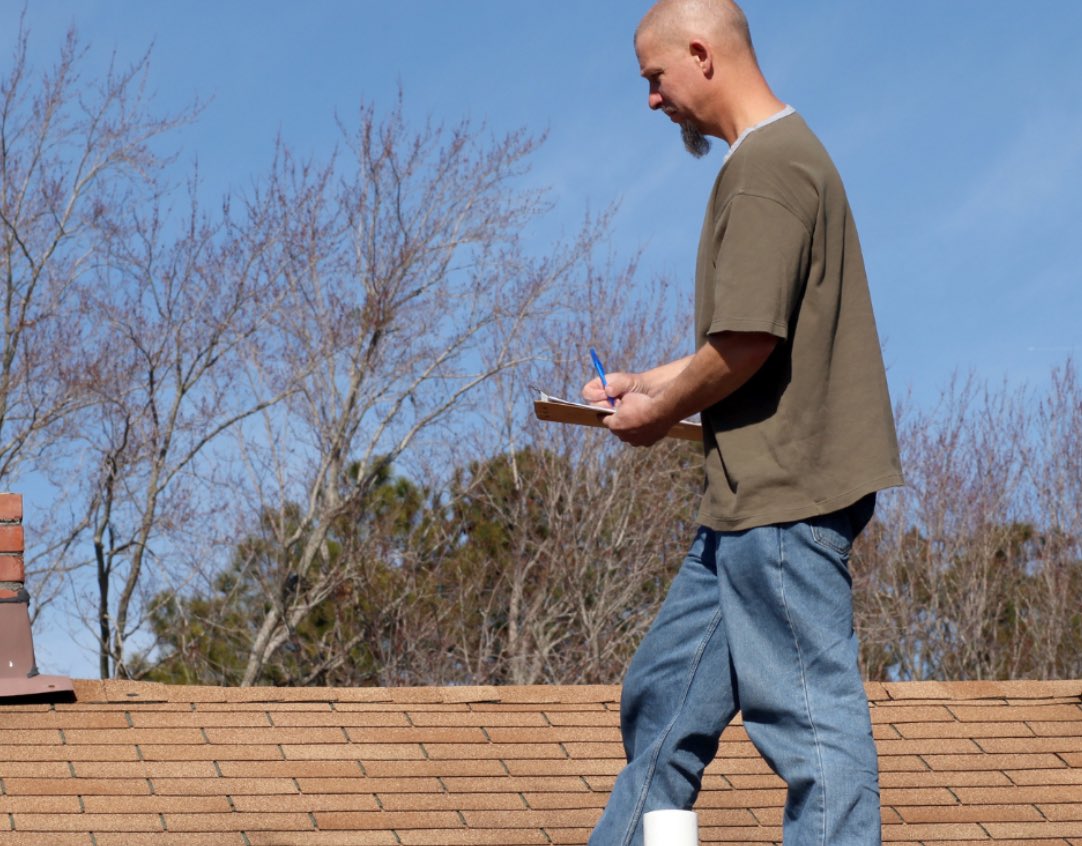
Even with regular maintenance, every roof will eventually need to be replaced. Knowing when to replace your roof is essential to avoid severe damage and costly repairs.
Understanding the signs that indicate a roof replacement is necessary can save homeowners from unexpected expenses and ensure the continued protection of their homes. By recognizing these signs early, you can plan for a roof replacement that fits your budget and schedule.
Signs You Need a New Roof
- Shingles are curling, buckling, or missing
- Roof is over 20 years old
- Visible daylight through the roof boards
- Frequent leaks or water damage
Additional signs may include granules from shingles accumulating in gutters and a sagging roof deck. If you notice these signs, contact a residential roofing expert to discuss your options for roof replacement and explore the latest roofing materials and technologies that can enhance your home's energy efficiency and durability.
Preparing for Nashville's Storms with Storm Damage Repair
Nashville is prone to storms, which can cause significant roof damage. Quick response and repair are crucial to preventing further issues.
Being prepared for storm damage involves having a plan in place to address potential issues promptly. By knowing the steps to take immediately after a storm, you can minimize the impact on your roof and home.
Immediate Steps After Storm Damage
- Assess the damage from the ground
- Contact your insurance company
- Hire a professional for a thorough inspection and repair
Documenting the damage with photos can be helpful for insurance claims. It's important to act quickly to prevent further damage and begin the repair process, ensuring your home remains safe and secure.
Final Thoughts on Seasonal Roof Preparation
Preparing your roof for the changing seasons is a proactive step in home maintenance. Regular inspections, timely repairs, and choosing the right roofing company can extend your roof's lifespan and protect your home from Nashville's unpredictable weather.
By investing in regular maintenance and being vigilant about potential issues, homeowners can enjoy peace of mind knowing their roofs are well-prepared for whatever the seasons bring.
Taking a proactive approach to roof maintenance not only protects your investment but also contributes to the overall energy efficiency and comfort of your home. By understanding the unique challenges posed by Nashville's climate and implementing effective maintenance strategies, you can ensure your home remains a safe and welcoming haven throughout the year.
At Universal Roofing & Construction, we specialize in seasonal roof preparation and maintenance. Contact us today to schedule your roof inspection and ensure your home is ready for the changing seasons!
Why Regular Roof Inspections Can Save You Money on Long-Term Repairs
A roof is your home's first line of defense against weather elements, and it needs regular check-ups to ensure it stays in peak condition. Extreme weather conditions like storms, heavy rains, and snow can cause wear and tear on your roof over time. Regular inspections can help identify damage caused by these elements before they escalate into more severe problems. Here are some critical reasons why routine inspections should be part of your home maintenance plan:
Detecting Early Signs of Damage
Regular inspections by professional roofing contractors can help identify early signs of damage that might not be visible to the untrained eye. These can include minor issues like small leaks, loose or damaged shingles, and inadequate sealing around vents and chimneys. Addressing these minor issues promptly can prevent them from escalating into significant problems that require costly repairs or even a complete roof replacement. Moreover, early detection and repair can prevent water damage to your home's interior, which can lead to mold growth and compromise indoor air quality.
Early detection of these problems can prevent them from escalating into significant issues that require more extensive, costly repairs. By addressing issues like cracked shingles or loose flashing early, you can avoid more extensive damage that might affect the structural integrity of your roof. Regular inspections also provide peace of mind, knowing that your roof is in good condition and capable of withstanding adverse weather conditions.
Extending Roof Lifespan
Routine maintenance and inspections can extend the life of your roof. By addressing minor issues promptly, you reduce the risk of needing a complete roof replacement prematurely. Regular maintenance ensures that your roof remains sturdy and performs its function efficiently for years. Prolonging the lifespan of your roof not only saves you money but also adds value to your property by maintaining its structural integrity.
Additionally, a well-maintained roof can improve your home's curb appeal and increase its resale value. Potential buyers are more likely to invest in a property with a roof in good condition, knowing they won't face immediate repair or replacement costs. Therefore, regular inspections and maintenance are beneficial for your current peace of mind and the long-term value of your home.
Enhancing Energy Efficiency
A well-maintained roof contributes to your home's energy efficiency. If your roof is damaged, it might lead to increased energy costs due to poor insulation. Regular inspections ensure that your roof is adequately sealed and insulated, helping to keep your energy bills in check. A roof with proper insulation prevents heat loss during winter and keeps your home cooler during summer, reducing the need for excessive heating or cooling.
Moreover, an energy-efficient roof contributes to a more sustainable lifestyle by reducing your carbon footprint. By ensuring your roof is in top condition, you can minimize energy consumption and promote an eco-friendly home environment. Investing in regular roof inspections and maintenance is a proactive step toward achieving energy efficiency and cost savings.
What Does a Roof Inspection Involve?
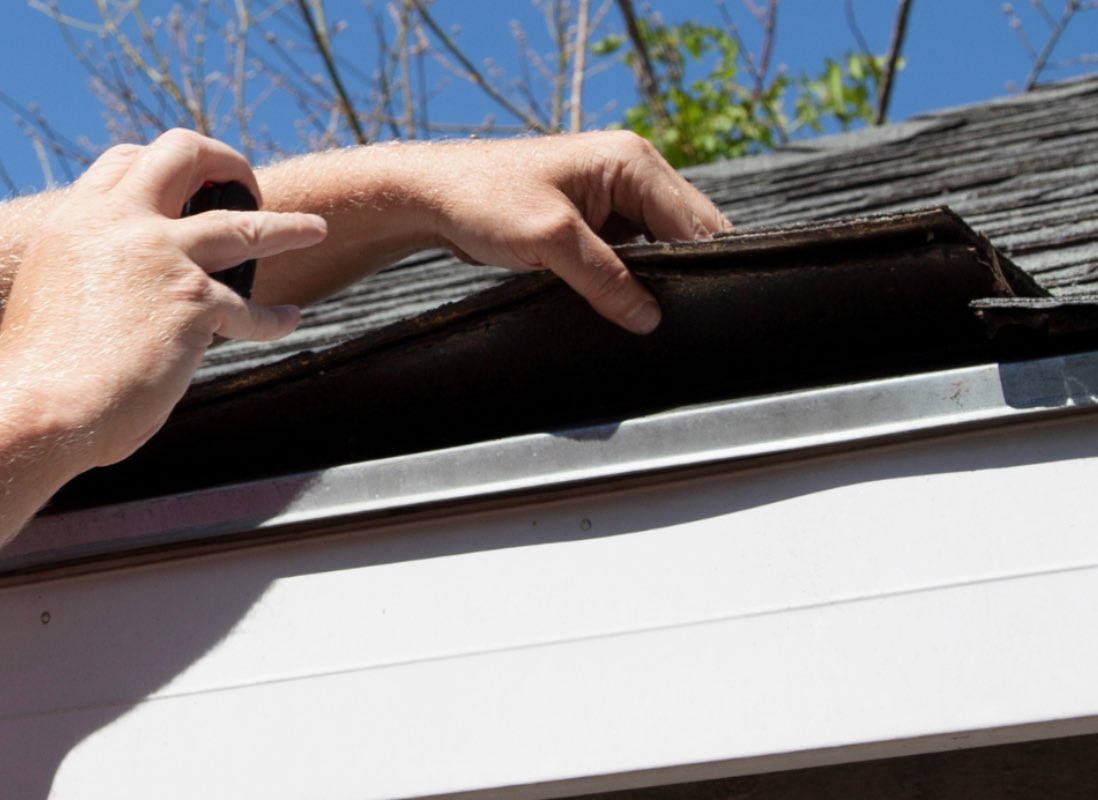
A thorough roof inspection involves several key steps. Here's a typical roof inspection checklist that professional roofing companies might follow. Understanding these steps can help homeowners appreciate the value of professional inspections and ensure that their roof receives comprehensive care.
Exterior Roof Inspection
- Shingle Condition: Inspect for any missing, curled, or cracked shingles. These issues can expose your roof to water infiltration and should be addressed promptly to prevent further damage.
- Flashing and Vents: Check the flashing around chimneys, vents, and valleys for signs of rust or damage. Damaged flashing can lead to leaks, compromising the roof's ability to protect your home.
- Gutter System: Ensure gutters are clear of debris and securely attached to the house. Blocked gutters can cause water to overflow, leading to roof and fascia damage.
- Moss and Algae Growth: Look for signs of moss or algae, which can indicate moisture problems. These growths can trap moisture against your roof's surface, accelerating decay.
Interior Roof Inspection
- Attic Ventilation: Assess if the attic is adequately ventilated to prevent moisture buildup. Proper ventilation is crucial for maintaining a stable temperature and preventing mold growth.
- Insulation Check: Ensure insulation is in good condition and not blocking vents. Adequate insulation helps maintain energy efficiency and prevents heat loss.
- Leaks and Water Stains: Look for signs of leaks or water stains on the interior walls and ceilings. These indicate potential roof leaks that need immediate attention to prevent further damage.
By following this checklist, roofing contractors can provide a thorough assessment of your roof's condition and recommend necessary repairs or maintenance tasks. Homeowners can gain valuable insights into their roof's health and take timely action to address any issues identified during the inspection.
The Role of Roofing Contractors
Hiring professional roofing contractors for inspections ensures a thorough and accurate assessment of your roof's condition. They have the experience and expertise to spot issues that might be missed by a homeowner and can provide recommendations for repairs or maintenance. Choosing the right contractor is crucial for ensuring quality inspections and repairs, ultimately protecting your home's value and safety.
Storm Damage Roof Repair
Severe weather conditions can wreak havoc on your roof. After a storm, it's crucial to have your roof inspected for damage. Professional roofing contractors can quickly assess storm-related damage and perform necessary repairs to prevent further issues. They are equipped with the tools and knowledge to handle emergency repairs, ensuring your roof is restored to its optimal condition promptly.
Contractors can also provide guidance on preventive measures to protect your roof from future storm damage. This might include reinforcing vulnerable areas or recommending roof upgrades designed to withstand extreme weather. By taking proactive steps, homeowners can minimize the risk of extensive storm damage in the future.

Roof Maintenance Tips
Regular maintenance is key to prolonging your roof's lifespan and preventing costly repairs. Here are some practical roof maintenance tips that homeowners can incorporate into their routine to keep their roof in excellent condition:
- Regular Cleaning: Keep gutters and downspouts clear of leaves and debris to prevent water buildup. Blocked gutters can lead to water damage and compromise the roof's structural integrity.
- Trim Overhanging Branches: Trim back branches that hang over your roof to prevent damage from falling limbs. Overhanging branches can also provide a pathway for pests to access your roof.
- Check for Debris: Remove any debris from the roof surface that could trap moisture and lead to mold or rot. Regularly inspecting your roof for debris can prevent moisture buildup and prolong its lifespan.
- Schedule Bi-Annual Inspections: Have your roof inspected at least twice a year, preferably in spring and fall. Regular inspections help identify and address issues before they escalate, ensuring your roof remains in good condition year-round.
When to Consider Roof Replacement
Despite regular maintenance, there comes a time when a roof replacement is the most cost-effective solution. Signs that your roof may need replacing include:
- Age: Most roofs last between 20 to 30 years. If your roof is nearing this age, consider a replacement. An aging roof is more susceptible to damage and less efficient in protecting your home.
- Frequent Repairs: If you're constantly patching leaks or replacing shingles, a new roof might be more economical. Continual repairs can add up, making a replacement a more cost-effective long-term solution.
- Visible Sagging: Sagging indicates structural issues and requires immediate attention. A sagging roof poses a safety risk and should be addressed by a professional roofing contractor.
A trusted roofing company can help you determine the best course of action based on your roof's condition and your budget. They can provide expert advice on roofing materials and installation options that meet your needs and preferences.
Conclusion
Regular roof inspections are a wise investment that can save you money and hassle in the long run. They ensure that your roof remains in good condition, protecting your home and enhancing its energy efficiency. By partnering with experienced roofing contractors and following a proactive maintenance plan, you can extend the life of your roof and avoid costly repairs or replacements.
Remember, a small investment in regular inspections today can prevent significant expenses tomorrow. Make roof inspections a priority in your home maintenance routine to safeguard your home and your wallet. Taking these preventive measures not only ensures your roof's longevity but also enhances the safety and comfort of your living environment.
For expert residential roofing and roof inspection services in Buford, contact our team at Universal Roofing & Construction!


